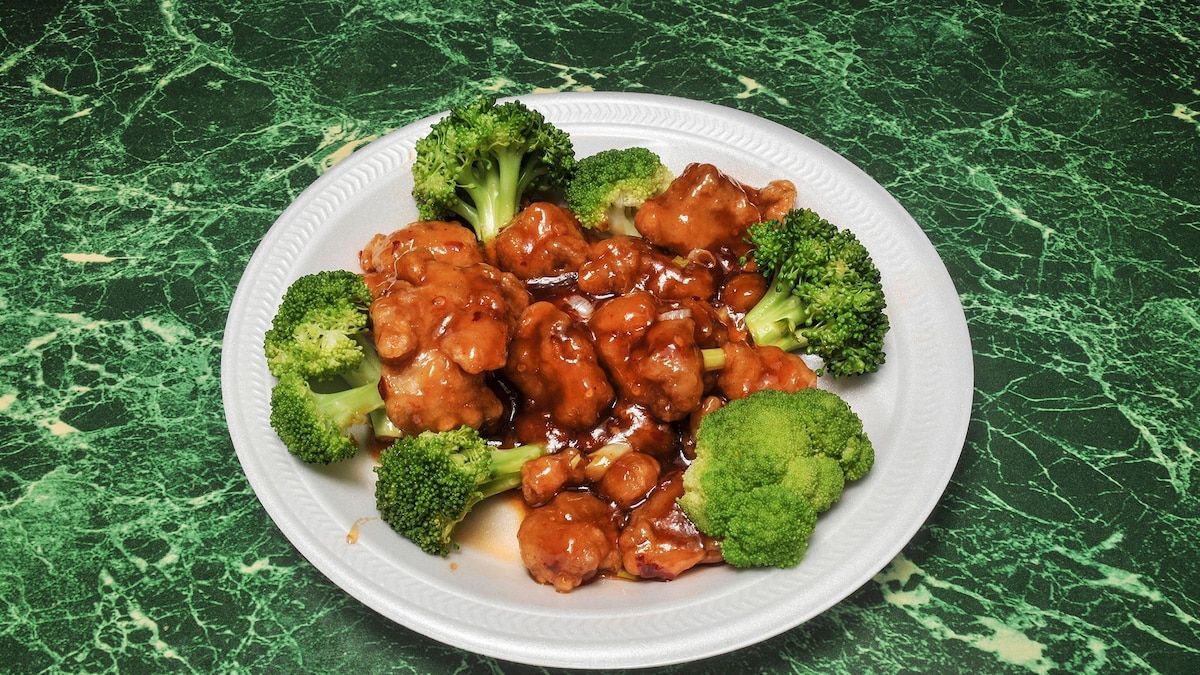Now Reading: Who is General Tso—and why does he have his own chicken dish?
-
01
Who is General Tso—and why does he have his own chicken dish?
Who is General Tso—and why does he have his own chicken dish?

For the past fifty years, few dishes have defined Chinese-American cuisine quite like General Tso’s chicken. With its glistening, deep-fried crunch and sticky, sweet-savory glaze, it’s become a staple on takeout menus across the United States.
But the dish was never meant to reflect traditional Chinese cooking. Although it originated in Taiwan, General Tso’s chicken was purposefully crafted to seduce the American palate from the very beginning.
(Peking duck: the complex history of a Chinese classic.)
The origins of General Tso’s Chicken
The original version of General Tso’s chicken was a far cry from the over-sauced rendition that defines the dish in America today. It was a meticulously crafted fine-dining recipe developed by Peng Chang-kuei, one of the most skilled and respected Chinese chefs of his generation.
Born in 1919 in the southern Chinese province of Hunan, Peng began his career as an apprentice chef before becoming the official banquet chef for the Chinese National Government. After the Chinese Civil War, he fled with the Nationalists to Taiwan.
“Peng had a regal air to him,” says Taiwanese journalist Cindy Hsu, who interviewed Peng in 2013. “He was still very sharp and ran his kitchen with military precision.”
Peng came up with the dish in Taipei in 1953 when preparing a diplomatic state dinner for visiting American Adm. Arthur W. Radford during a three-day banquet.
“At that time, Peng was the most important chef in Taiwan,” explains Hsu. “And even though they invited three different restaurants, in reality, he cooked everything.”
By the third day, Peng had already exhausted his repertoire of classic banquet dishes and wanted to impress his guest of honor with something new. “He knew Americans liked fried chicken, so he deboned a chicken thigh and fried it,” Hsu says. “But plain fried chicken was already familiar to them. So he thought about what else they enjoyed—something savory, sour, and a little spicy,” flavors that often showed up in dishes like Sloppy Joes and sauced chicken wings.
He coated the crispy chicken in a tangy sauce, added slivers of chili for heat, and named the dish after General Tso, a renowned 19th-century military strategist who played a key role in helping the Qing Dynasty maintain stability across the empire.
Peng explained that Zeng was known for being frugal, a reputation that didn’t suit his rich and indulgent chicken dish. General Tso, though lesser-known, had a bolder, more commanding image, which Peng felt better matched the dish’s flavors.
How the Chinese dish became Americanized
In 1973, Peng moved to New York and opened a Hunan-style restaurant called Uncle Peng’s Hunan Yuan, to much acclaim. The restaurant, located in Manhattan near the United Nations, typically drew a diplomatic crowd; U.S. Secretary of State Henry Kissinger was a well-known regular.
However, variations of Peng’s signature chicken dish were already circulating on rival menus. Among those serving their own takes on General Tso’s chicken were Chinese chef Tsung Ting Wang and restaurateur David Keh. Their versions, however, were more tailored to contemporary American palates, featuring thicker batters and sweeter sauces. “General Tso’s chicken is not supposed to be sweet,” says Peng Tieh-Cheng, Peng’s son. “Hunanese food doesn’t require sweetness. It’s more spicy and savory.”
You May Also Like
But a modified flavor profile was precisely the point. “We didn’t want to copy chef Peng exactly,” Ed Schoenfeld, Keh’s former business partner, told Salon in 2010. “We added our own spin to dishes. And so our General Tso’s chicken was cut differently, into small dice, and we served it with water chestnuts, black mushrooms, hoisin sauce, and vinegar.”
Peng shrugged off the copycats. “My father understood how difficult it was for Chinese people to do business abroad,” says Tieh-Cheng. “If others used his name to get by, he let it slide.”
(These Chinese immigrants opened the doors to the American West.)
At that point, the dish had become larger than him. President Richard Nixon’s 1972 trip to China sparked a wave of curiosity about Chinese cuisine, and Chinese restaurants in America were responding in real time. Dishes like General Tso’s were ideally positioned—salty, sweet, crispy, but still foreign enough to feel adventurous.
“These Chinese chefs were there at a time to take advantage of this new interest in Chinese food,” says David R. Chan, a Los Angeles food blogger who has eaten at thousands of Chinese restaurants in America since the 1950s. “There were all of these new dishes showing up in New York, like General Tso’s, and people were going wild for it.”
General Tso’s remained mostly a New York phenomenon until the 1990s, when waves of Fujianese immigrants began to dominate the Chinese restaurant industry across the eastern United States. At their peak in the late ‘90s, Chan estimates Fujianese chefs controlled the lion’s share of Chinese restaurants east of the Mississippi. Many of them opened buffets, where General Tso’s chicken was a staple.
“Everyone has their own way of making it, but once you call it ‘General Tso’s chicken,’ you’re using a name that already carries weight,” says Tieh-Cheng.
These restaurants shared a recognizable template: steam trays packed with bright green platters of stir-fried broccoli, golden bars of deep-fried spring rolls, and various proteins coated in brightly colored sticky sauces. It was in these buffet restaurants where General Tso’s chicken transformed from a novelty to a dependable anchor in the new landscape of Chinese-American dining.
Its reach, however, remained primarily on the East Coast. According to Chan, the dish never quite infiltrated the West Coast, where its sweeter and brighter cousin, orange chicken, dominated the Chinese-American food scene via chains like Panda Express.
The legacy of General Tso’s Chicken today
Peng went on to open Peng Yuan Hunan Restaurant in Taipei in the 1980s, and the eponymous restaurant is still around today. Now a restaurant chain with nine locations, it specializes in wedding banquets and special events, where guests dine on large round tables draped in thick tablecloths, with ornate light fixtures hanging from the ceiling.
The cuisine remains true to the essence of a fine, classic Chinese meal—with a balance of textures, a thoughtful progression of dishes, and an emphasis on harmony between flavors. Instead of just a Hunanese restaurant, it has evolved into a pan-Chinese experience, incorporating influences from Cantonese, Shanghainese, and Sichuanese traditions.
But General Tso’s chicken is still a fixture on the menu, where it retains its original sense of refinement: delicately fried and soft, coated in a balanced ratio of savory and tangy. It’s served on a gleaming stone plate, accompanied with a singular orchid resting on a delicate bed of parsley. The heat of the dish is barely detectable and instead comes in as a gentle aftertaste.
Outside of Peng Yuan, however, General Tso’s chicken is an anomaly. While versions of it can occasionally be found on the menus of Hunan or Sichuan-style restaurants across Taiwan, it’s rarely highlighted and almost never treated as a signature dish.
General Tso’s chicken is mostly remembered as a curiosity—something that never took hold at home but made waves overseas. “It’s considered retro,” says Kuo Chung-Hao, a professor of food history at Taipei Medical University. “It’s not something people here really eat often.”
But General Tso’s was never designed for a Chinese or Taiwanese audience in the first place. Although named after a Chinese soldier, it was created to suit the taste buds of an American one, and then further morphed to accommodate the taste preferences of the general American public. From the very beginning, the dish was crafted by a Chinese chef for an American admiral—making General Tso’s chicken, in the end, just as American as it is Chinese.























